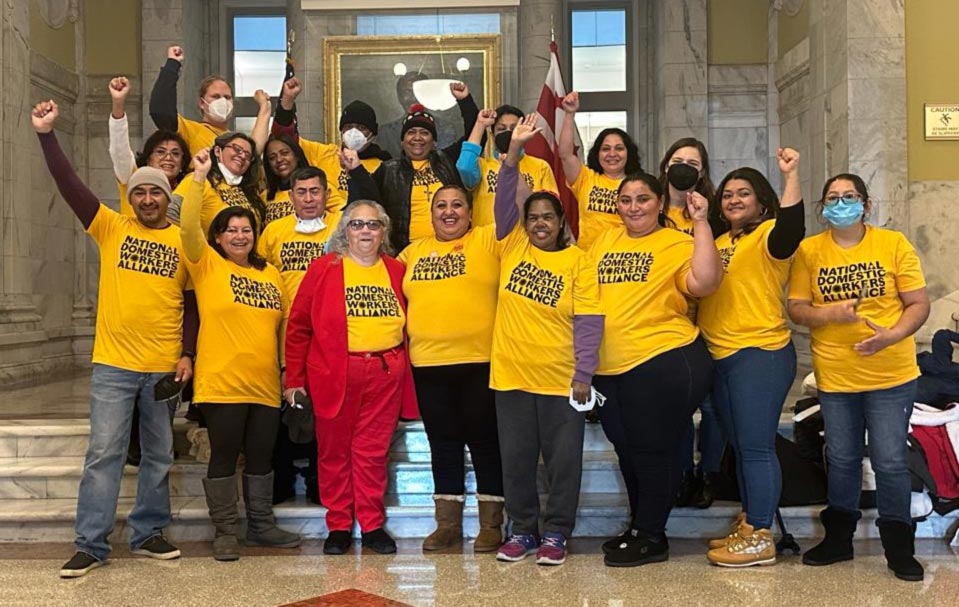What is the DC Domestic Workers Bill of Rights?
In December 2022, the DC Council passed the DC Domestic Workers Bill of Rights. The bill finally includes domestic workers, many of whom regularly experience sexual harassment, wage theft, and other forms of workplace discrimination, in basic legal rights.

Members of NDWA celebrating the passage of the DC Domestic Workers Bill of Rights.
What rights are included in the bill?
The recently passed DC Domestic Workers Bill of Rights will:
- Include domestic workers in DC’s Human Rights Act, to provide protection against sexual harassment and discrimination on the basis of race, color, national origin, sex, age, religion, disability, sexual orientation, and other characteristics.
- End the exclusion of domestic workers from DC’s occupational health and safety law.
- Require written agreements between domestic workers and their employers to ensure workers know their rights and employers are aware of their responsibilities.
- Establish a Domestic Work Outreach and Education Program within the Department of Employment Services (DOES). DOES will collaborate with organizations that work with domestic workers and employers to provide education and training on labor standards in the industry.
Learn More About this Bill
Background of the DC Bill of Rights
Domestic work is one of the most important and fastest growing jobs in the country, yet it is some of the most unprotected and vulnerable work, excluded from basic labor rights and protections and primarily done by women of color and immigrants. Read some of the compelling testimonials from our DC Chapter domestic workers.
Of the 9,040 domestic workers working in DC:
- 92% are women
- 91% are people of color
- 71% are immigrants
The median annual earnings for a domestic worker in DC is $25,888.
In Washington DC, domestic workers are subject to wage theft, workplace discrimination, unstable schedules, lack of access to basic workplace benefits, and more.
Until the bill was passed in 2022, domestic workers were the only group of workers excluded from DC’s Human Rights Act. This exclusion is a remnant of a long legacy of racism that dates back to slavery. The exclusion from DC’s Human Rights Act reflects the federal exclusions of domestic workers from several bedrock workplace protections passed in the 1930s. Domestic workers were intentionally excluded from these protections in order to gain the votes of southern lawmakers, who did not want to include the overwhelmingly Black workforce that did domestic work at the time.
What are the next steps to make this law real in the lives of domestic workers?
The National Domestic Workers Alliance is actively working to ensure the law’s implementation in DC. In June 2023, the DMV Chapter and their allies successfully won funding for this law in DC’s Fiscal Year 2024 budget. The first provisions of the law will go into effect October 1st, 2023. Check back to this page to see what actions you can take to support the implementation of this bill. If you are a domestic worker and feel passionately about ensuring that domestic worker rights in DC are protected and enforced, join the NDWA DMV Chapter to get involved with our work.
